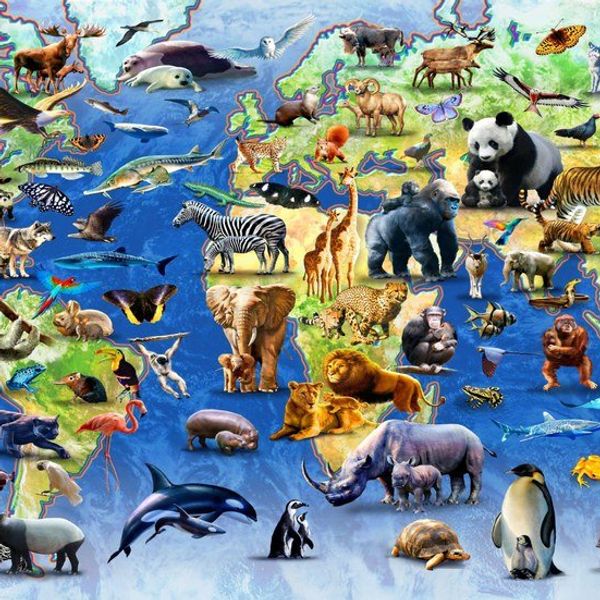When the word 'poaching' pops up in today's society, the first creatures thought of are the elephant, the tiger, or the rhinoceros. People think of ivory or rugs made of pelts. While it's important to understand that these mammals are indeed highly poached animals, the unfortunate title of "most poached and illegally trafficked mammal" goes to a highly unknown species, the pangolin.
Profile.
Native to southeast Asia and sub-Saharan Africa, very little is known about these curious critters. To make it even more difficult to learn about them, traits vary greatly from species to species. Some species are nocturnal, some aren't. Some are burrowing mammals, and others sleep up in the trees. They vary in size, weight, location, and even color.
But all eight species have several key factors that make them who they are;
- They are solitary
- They feed on ants and termites dug up from the ground using the pangolin's long and sticky tongues
- They are covered in protective overlapping scales made up of keratin, which is the same material that composes human hair and fingernails
- Their hard shells are very strong and are similar to a personal fortress
- Females carry their babies on their tails for their first two years of life to protect their young
- They walk balanced on their hind legs with their clawed forearms dangling close to the ground
- To defend themselves, all they do is curl up into a tight ball and let their scales do the work
Why Are They Poached?
Obviously, we know that the mass murder of a species isn't right. The primary drive to poaching is profit. For the pangolin, all of their body parts are sold by the poacher. Their hard scales can be ground up into a medical powder, or they can be used in high fashion. Pangolins can also be eaten as a delicacy, and their other body parts are used for traditional medicine. Similar to the ivory tusk of an elephant, they are seen as a symbol of wealth, as only the rich and powerful can afford to wear clothing of their scales or eat pangolin soup.
Many of these individuals don't understand the harm they are indirectly causing. They either don't know the critical status of the species, or they aren't quite aware of the legality of their purchases. Poachers are smart, and many documents can be forged, and scales can be hidden in a variety of cargo sources. In one situation, Hong Kong officials confiscated 4.4 tons of pangolin scales hidden in cargo labeled "sliced plastics" from Cameroon. This load was valued at approximately $1.25 million and used scales from between 1,100 and 6,600. This happened in June 2016, and very few even heard about it.
What Can We Do?
Most of us understand the dangers and wrongs of poaching, and can't possibly fathom why people would continue to murder these beautiful creatures. There are a number of solutions, though. As they are now an endangered species, it's important for the anti-poaching laws and punishments to be effective and enforced. This can be attained by strengthening community-based conservation efforts in all of the countries affected. But that might sound like it's too large of a goal for just a few people across the world. This is not so. We might not be able to help firsthand, but the most effective and important way to stop poaching is by spreading awareness. The pangolin will be extinct within 25 years at this rate, according to the IUCN. They are being poached at 10 times the rate that the rhino is, and still very few have even heard about them. It's shocking. It's downright unfair to these poor creatures.
Spreading awareness is a critical factor in the protection of endangered species. This could be as simple as just discussing them with peers and understanding more about the creature in question. It's also crucial to share stories about the importance of every living thing on this earth and to protect them. If the world knows more about the organism that should be protected, then they will have more desire to do so. So, I encourage you to research into the animals that are on the endangered species list and to share your knowledge with anyone that will listen.




















